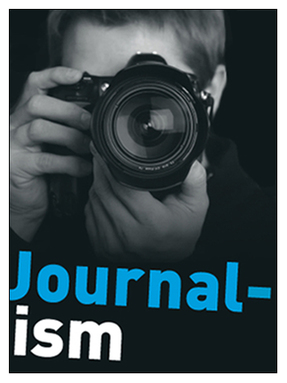The truth will always triumph
- By Earl Bousquet
 0 Comment(s)
0 Comment(s) Print
Print E-mail China.org.cn, December 22, 2012
E-mail China.org.cn, December 22, 2012
Every now and then a media house somewhere offers good reason to frown about the deep depths to which reporting is lowered today in the name of entertainment. Indeed, 2012 saw some of the lowest lows to which journalistic standards were brought in the international media.

Journalism has changed over the years. Writing tools have progressed from feathers, pencils, pens and typewriters to word processors, computers and today's smart phones. Information technology - particularly the Internet in the past 25 years - has radically changed the face of the media over time.
Once upon a time, news gathered and disseminated by journalists meant to be strictly informative and media entertainment was mostly enlightening. But in today's media, boundaries and borders have been erased and there's no level playing field left anywhere.
Today's world is a media stage in a global village - and the rule of thumb for a growing number of influential media houses sounds like "anything goes, once it'll sell."
Take the increasing use of hoaxes in the name of entertainment. Just days after the 2012 US Presidential Election, an American publication circulated, via the Internet, a story about how ex-President George W. Bush had "mistakenly" voted for President Barack Obama. A few days later, another American publication reported North Korean President Kim Jong-un had been judged by a prestigious American panel to be "The world's most handsome man."
More recently, two Australian broadcasters placed a fake call to a London hospital where Britain's Duchess of Cambridge (Queen Elizabeth II's grand daughter-in- law) was admitted for treatment of complications associated with early pregnancy. Pretending to be the Queen and her husband, the two radio hosts misled the unsuspecting nurse assigned to the Duchess into revealing details about her condition, which were later broadcast.
All three hoaxes were intended to take worldwide audiences for a sweet ride. The Bush and Kim Jong-un fake stories were largely laughed off. But the case of the fooled London nurse was no laughing matter: the distraught nurse who took the call committed suicide.
This year also ends with the lingering effects of the 2011 hacking scandals that rocked the UK after the News of the World tabloid tapped into a murdered British teenage girl's cell phone.
Hacking isn't yet defined in the English dictionary. But, plain and simple, it's use of technology to invade individuals' privacy by illegally recording their private telephone, text or e-mail conversations - and selling the stolen information through headlines.
The hacking scandal led to the formation of the Leveson Inquiry, which submitted its report in November. Its main recommendation was for the UK media to self-regulate. UK legislators, unwilling to effect legislation, issued a similar request for the British press to regulate itself.
Hoaxing and hacking are but two peas in a pod. Neither is better or worse, and both go against the grain of journalistic integrity. A hoax is intended to deceive and mislead victims into believing a lie. This act of deceit constitutes deliberate misinformation through disinformation.
However, hoaxers and hackers in the Western media, no matter where, often escape with mere slaps on the wrist. The public invariably cries shame on the worst cases of media abuse of public trust. But the political directorate's blind servitude to the varied notions of freedom of speech, freedom of the press and freedom of information invariably sees them offering reasons why laws and penalties applied to everyone else fail to apply to the media.
People everywhere depend on the media to inform, entertain and enlighten them about what's happening everywhere else. That dependence is based on historical trust. But there's always a fringe player somewhere that goes against the grain of the journalistic norm - the comedic satirists, the speculative tabloids, media monitoring of people's private affairs, those who demand and defend their right to insult Islamic religious leaders in the name of "free speech," and specialists in capturing topless photos of the world's rich and famous women.
Stealing information for sale, buying "leaks" from informants, worming into the hearts and minds of governing politicians, deliberately deceiving readers, viewers and listeners - all only to shape headlines and increase ratings - are just some of the more outrageously practices of the modern media.
The Internet is a game-changing, life-altering invention that's gone beyond all borders, fully out of control. It's as useful as it is harmful. It helps and hinders - and in the process, knowledge either grows or suffers. The 193 countries that met in Dubai this past fortnight to discuss UN regulation of the Internet through the International Telecommunications Union (ITU) found it can't be done because the West won't allow it.
Unfortunately, the lunatic fringe that hoaxes and hacks its way through the world's media can't be simply wished away. Nor can the Internet be easily regulated worldwide after 25 years on the loose - and with 70 percent of its total traffic comprising spam.
The stains of the hoaxers and hackers will remain and continue. The lunatic fringe had a good year and they won't disappear. But, in the end, truth will continue to prevail as the benchmark yardstick by which journalism is measured all over the world - because truth always triumphs.
The author is a columnist with China.org.cn. For more information please visit: http://www.china.org.cn/opinion/earlbousquet.htm
Opinion articles reflect the views of their authors, not necessarily those of China.org.cn






Go to Forum >>0 Comment(s)